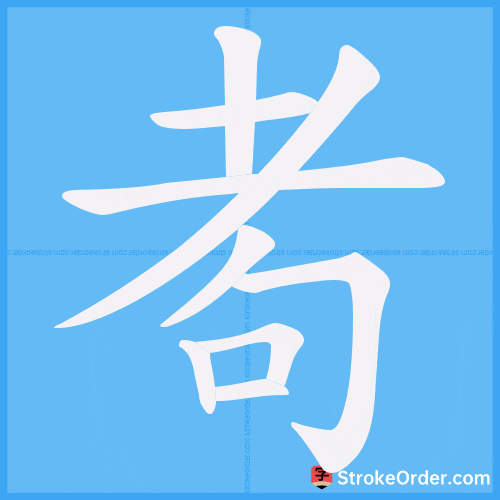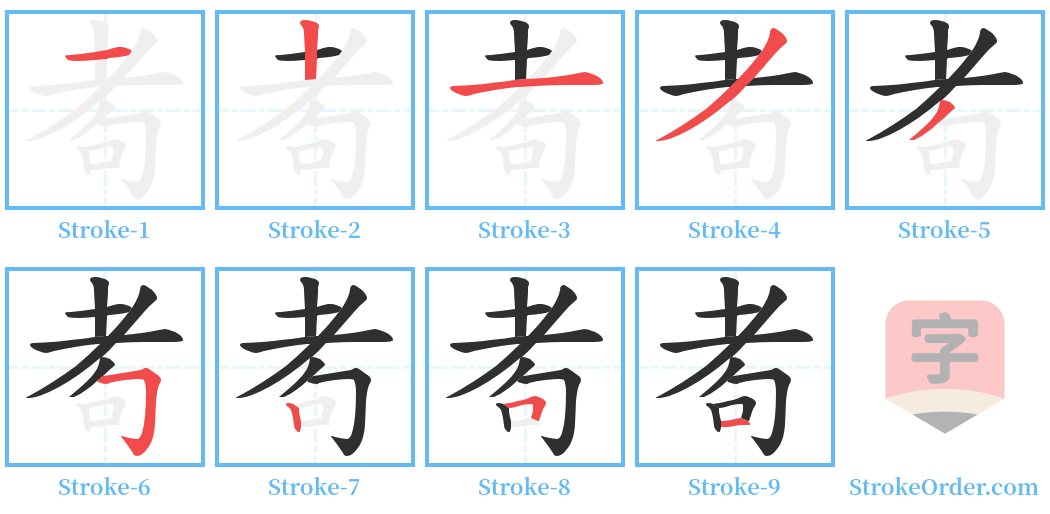耇 Stroke Order
Animated Stroke Order of 耇

Stroke Order Diagrams for 耇

Information of 耇
Pinyin
gǒu
Radical
耂
Strokes
9 strokes
Usage
★★
Definition
耇 (gǒu)
1. 老人面部的寿斑。
(Age spots on the face of the elderly.)
2. 高寿。
(Longevity.)
例:岁月其徂,年其逮~。
(Example: "As time passes, year after year...")
3. 【本义】: 长寿,年老
(Original meaning: Longevity, elderly.)
造字法: 会意。从老省,从句,句亦声。
(Character formation: Semantic-phonetic compound. From "old" and "sentence," with "sentence" contributing to the sound.)
引:
1. 《说文》:耇,老人面冻黎若垢也。按,当训老人背伛偻也。
(Shuowen: "Gǒu refers to old people whose faces are mottled like grime. Note: It should refer to the bent backs of old people.")
2. 《诗·大雅·行苇》:黄耇鲐背。
(Book of Songs: "The old man has a yellow back like a dried fish.")
3. 《尔雅》:耇,老寿也。
(Erya: "Gǒu means longevity.")
4. 《书·微子》:咈其耇长。
(Book of Documents: "Remarkably, the elder lived long.")
5. 《书·君》:耇造德不降。
(Book of Documents: "The elder's virtue does not diminish.")
6. 《周书·皇门》:克有耇老。
(Book of Zhou: "May one have great elders.")
例:
又如: 耇革(老人枯皮如革); 耇垢(皮色骊顇如垢); 耇老(老年人)
(Examples: "Gǒu leather" (elderly skin like leather); "Gǒu dirt" (skin color like dirt); "Gǒu old" (elderly person).)